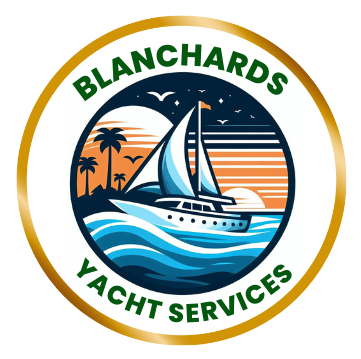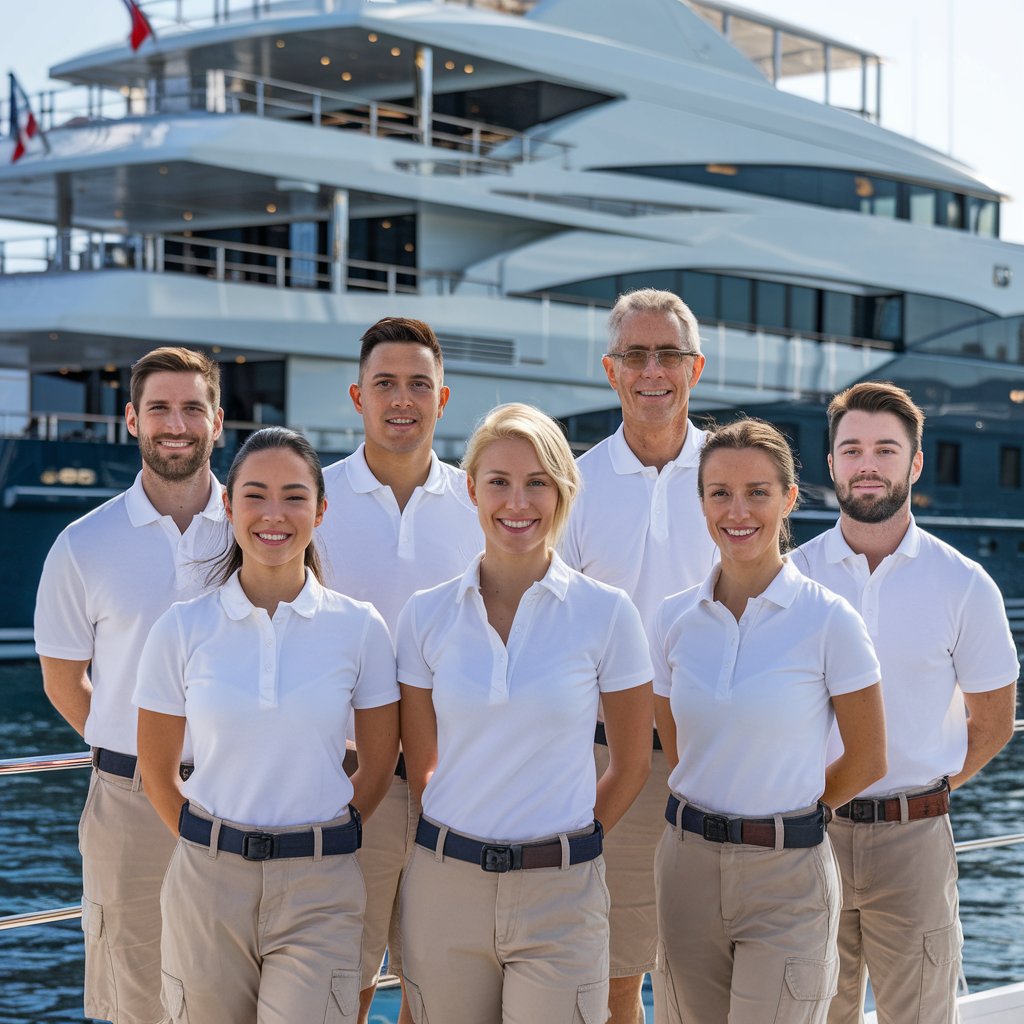In the world of yachting, the crew’s efficiency and management play a pivotal role in ensuring both the safety and enjoyment of those on board. A Well-Coordinated, Highly Trained Crew is the backbone of any successful voyage, as they are responsible for everything from Navigation and maintenance to guest services and Emergency Response. The stakes are high, and even the smallest lapse in judgment or communication can lead to significant consequences.
Effective crew management is more than just assigning tasks. It’s about fostering a team environment where each member understands their role, feels empowered to perform at their best, and communicates seamlessly with others. This cohesion not only enhances the overall experience for guests but also minimizes the risk of accidents. With the majority of marine accidents being attributed to human error, the importance of crew efficiency cannot be overstated. By prioritizing rigorous training, clear communication, and strong leadership, yacht operations can be optimized, making the difference between a smooth, safe journey and a potential disaster.
The responsibilities of the crew are vast and varied. Navigating through sometimes tricky waters, ensuring the yacht is well-maintained, attending to guests’ needs, and being ready to respond to any emergency situations are all critical tasks. Each crew member’s expertise and readiness to act decisively during high-pressure moments heavily influence the voyage’s safety and success.
Eureka E10s Robot Vacuum
Upgrade your cleaning routine with the Eureka E10s Robot Vacuum, a cutting-edge solution with a bagless self-emptying station that keeps dust and debris contained for up to 45 days—no more buying dust bags! With 4000Pa suction power, it tackles pet hair, carpets, and hard floors effortlessly, while the precision LiDAR navigation ensures every corner is covered. The E10s also features a 2-in-1 vacuum and mop combo that smartly lifts the mop on carpets, preventing any mess. Control everything via the Eureka app, customize cleaning zones, and enjoy up to 180 minutes of uninterrupted cleaning.

Training and Skill Development are at the core of a competent crew. Investing in continuous education and practice drills ensures that everyone on board is not only proficient in their tasks but also up-to-date with the latest safety protocols and Technological Advancements in the maritime industry.
Communication and Teamwork are essential. Clear and effective communication channels reduce the risk of misunderstandings that can lead to mistakes. Crew members must be able to convey information quickly and accurately, whether it’s routine instructions or urgent commands during an emergency. Teamwork, built through trust and mutual respect, further strengthens crew performance.
The impact on the guest experience is profound. When the crew operates smoothly and efficiently, guests are able to enjoy their time on board without concern. They appreciate the seamless service, the attention to detail, and the sense of security that comes from being in capable hands. A happy, well-served guest is often the result of a happy, well-organized crew.
Mitigating Human Error for Safe and Enjoyable Yacht Operations
Operating a yacht is a unique blend of precision, skill, and experience. As with any complex system, the human element is often the most critical—and sometimes the most vulnerable—aspect of yacht safety and operation. Understanding how human error can influence the safety and operation of a yacht is essential for preventing accidents and ensuring a smooth, enjoyable experience on the water.
Human error can stem from various sources. Fatigue is a common factor. Long hours and Demanding Tasks can wear down even the most experienced crew members, leading to slower reaction times and mistakes. Keeping watch schedules reasonable and ensuring the crew gets proper rest helps mitigate this risk.
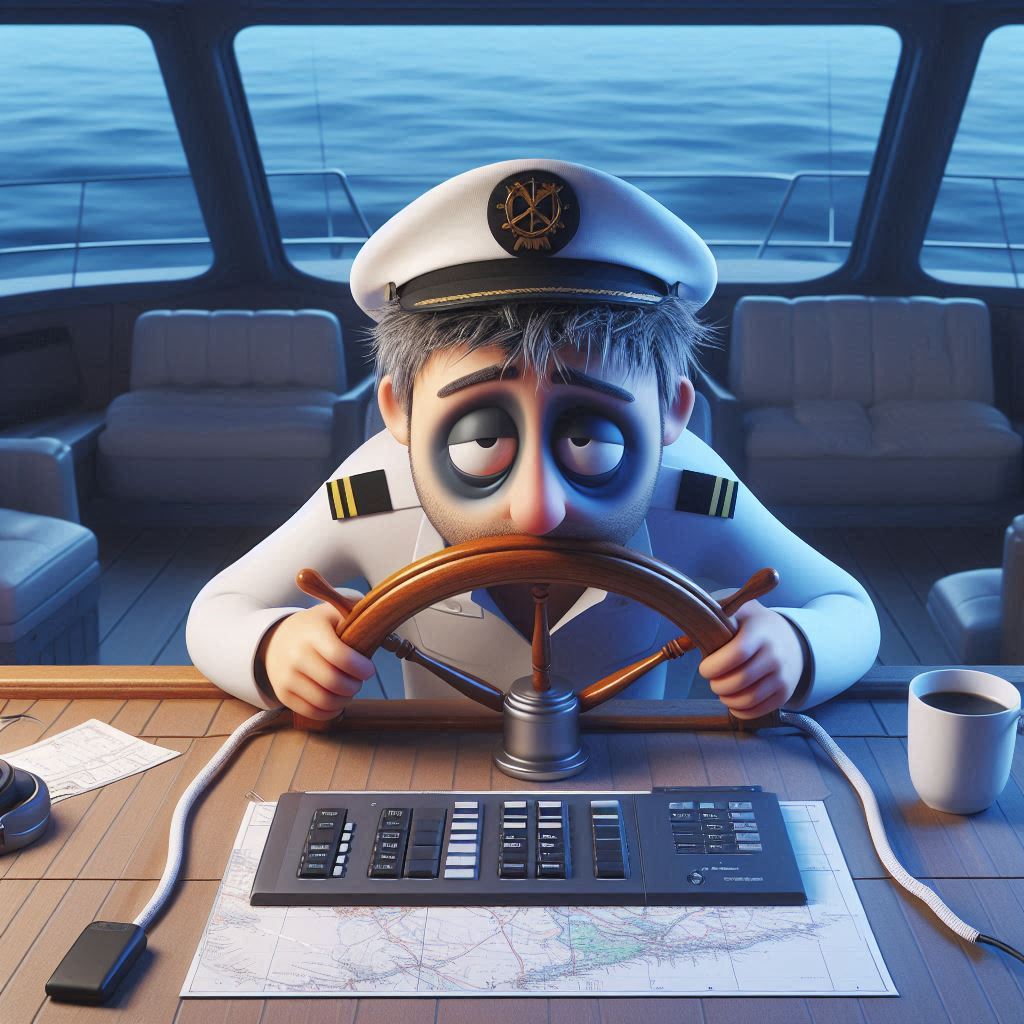
Poor communication is another significant contributor to human error. Clear, direct communication is crucial, especially in high-stress situations. Regular briefings and the use of standardized communication protocols can reduce misunderstandings and keep everyone on the same page.
Overconfidence also plays a role. While confidence in one’s abilities is important, it’s critical to avoid complacency. Consistently following checklists, adhering to safety procedures, and showing humility by recognizing the limits of one’s knowledge and skills can prevent overconfidence from leading to risky decisions.
The consequences of human error on a yacht can range from minor inconveniences to severe accidents. Navigational mistakes can lead to groundings or collisions, while poor communication can result in equipment damage or injuries. In the worst cases, human error can escalate to life-threatening situations. This is why understanding and mitigating the risk is paramount.
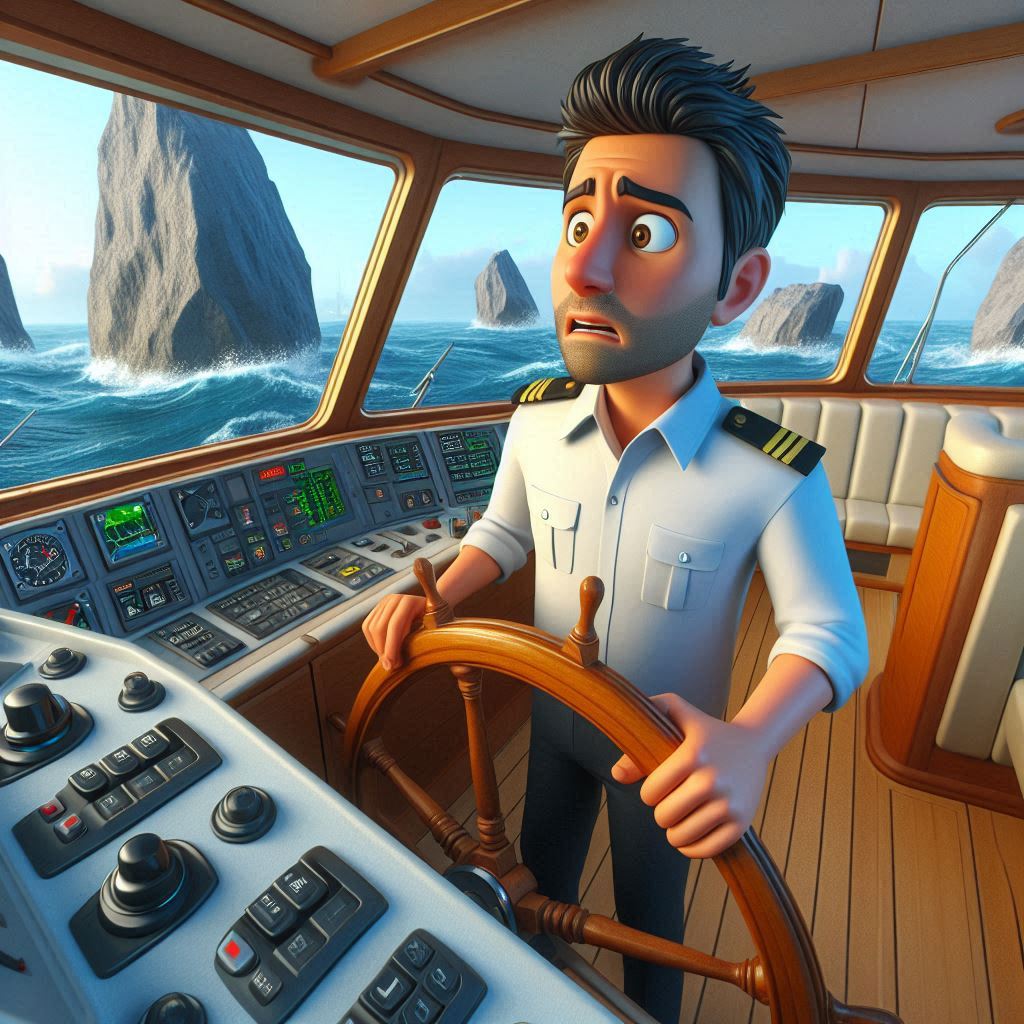
You may have read about the accident involving the sailing yacht Bayesian on August 18, 2024. The yacht, owned by Mike Lynch, a prominent tech entrepreneur, tragically sank off the coast of Sicily in the Mediterranean. While the exact cause of the incident was filled with uncertainties, human error was not ruled out as a possible factor. Unfortunately, lives were lost including that of the owner, The incident raised concerns about the potential risks associated with even the most advanced maritime vessels and the effect that the Climate may have on Yachting.
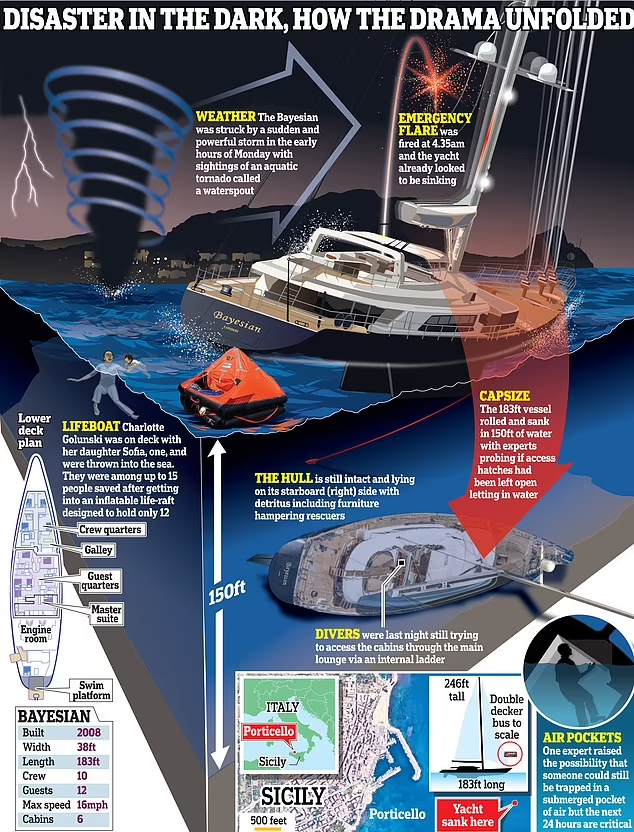
Common Sources of Human Error on Yachts
- Navigation Mistakes
Navigational errors are among the most significant human errors that can affect a yacht. These mistakes can stem from misreading charts, poor route planning, or misinterpreting Weather Forecasts. Even Seasoned Captains can make navigation errors if they become complacent or are under stress. Advanced technology like GPS, AIS and Chart Plotters are invaluable, but they are not foolproof; the human factor remains crucial. - Communication Breakdown
Effective communication is vital for a yacht’s operation. Miscommunication among crew members or between the captain and crew can lead to serious errors. For example, unclear instructions during docking or anchoring can result in collisions or damage. Ensuring that all crew members are on the same page and understand their roles is essential to minimizing the risk of accidents. - Fatigue and Stress
Fatigue is a silent enemy in yachting. Long hours at sea, particularly in challenging conditions, can lead to exhaustion, which significantly impairs judgment and reaction times. Stress, whether from challenging weather conditions, time pressure, or interpersonal conflicts, can also cloud decision-making. It’s important for captains and crew to recognize when they need rest and ensure that everyone is functioning at their best. - Overconfidence and Complacency
Experience is invaluable, but it can sometimes lead to overconfidence or complacency. Experienced sailors might skip essential checks or take unnecessary risks, assuming they have the skills to handle any situation. This attitude can be dangerous, as even the most experienced sailors are not immune to the unpredictability of the sea. - Inadequate Training
Proper training is the backbone of safe yacht operation. Crew members who lack the necessary training or fail to stay updated on safety protocols are more likely to make mistakes. Investing in Regular Training Sessions and simulations for both new and seasoned crew members can significantly reduce the likelihood of human error.
LetPot LPH-SE Hydroponics Growing System
Elevate your indoor gardening with the LetPot LPH-SE Hydroponics Growing System—an advanced 12-pod smart herb garden kit that brings professional-grade growth to your home. Featuring a patented smart hydroponic system with app and WiFi control, it allows you to effortlessly customize your plant’s LED lighting schedule and ensures optimal growth with a true 24W full-spectrum LED. With two specialized growing modes, a 5.5L water tank, and automatic reminders, this sleek, stainless-steel system is your all-in-one solution for fast, healthy, and vibrant indoor plants year-round.

What Percentage of Marine Accidents Are Caused by Human Error?
Studies have consistently shown that a significant percentage of marine accidents are directly linked to human error. In fact, it is estimated that human error accounts for approximately 75% to 96% of marine accidents, depending on the specific context and type of incident. This staggering figure underscores the critical role that human decisions, actions, and oversights play in the safety and operation of vessels, including Yachts. Despite advancements in technology and safety protocols, the human element remains a dominant risk factor.
The high percentage of accidents attributed to human error highlights the importance of addressing this issue within the yachting industry. While technology can aid in reducing some risks, it cannot entirely eliminate the potential for human mistakes. This reality emphasizes the need for continuous training, the promotion of a safety-first culture, and the implementation of fatigue management strategies. By focusing on these areas, the yachting community can work towards significantly reducing the incidence of human error and, consequently, the number of marine accidents.
Mitigating Human Error
- Continuous Training
Regular training and drills are essential. Keeping the crew sharp and ready for any situation ensures that they can respond effectively, even under pressure. - Promoting a Safety-First Culture
Encouraging a culture of safety over speed or convenience helps reduce errors. This means emphasizing the importance of checklists, double-checking navigation, and fostering open communication. - Fatigue Management
Implementing schedules that allow for adequate rest and ensuring that no one is overworked can greatly reduce the risk of errors due to fatigue. - Use of Technology
While technology cannot replace human judgment, it can assist in reducing errors. Advanced Navigation Systems, Communication Tools, and safety equipment should be leveraged to support the crew. - Encouraging a Team Approach
Everyone on board should feel empowered to speak up if they notice something wrong, regardless of their rank. A collaborative team environment where concerns are addressed promptly can prevent errors from escalating.
Real-life case studies highlight the importance of addressing human error. Learning from past incidents where human error was a factor can offer valuable lessons and reinforce the need for vigilance. The sea is unpredictable, but with the right approach, the human element can be managed effectively to ensure smooth sailing.
**Our Website contains affiliate links. This means if you click and make a purchase, we may receive a small commission. Don’t worry, there is no extra cost to you. It’s a simple way you can support our mission to bring you quality content**.
USA – Unlimited Data eSIM
USA eSIM Experience the future of mobile connectivity with Voyafly eSIM, the cutting-edge technology designed to transform how you stay connected in USA. Say goodbye to the hassle of physical SIM cards and embrace a new era of seamless and convenient connectivity. Click Ad Below for more Information

